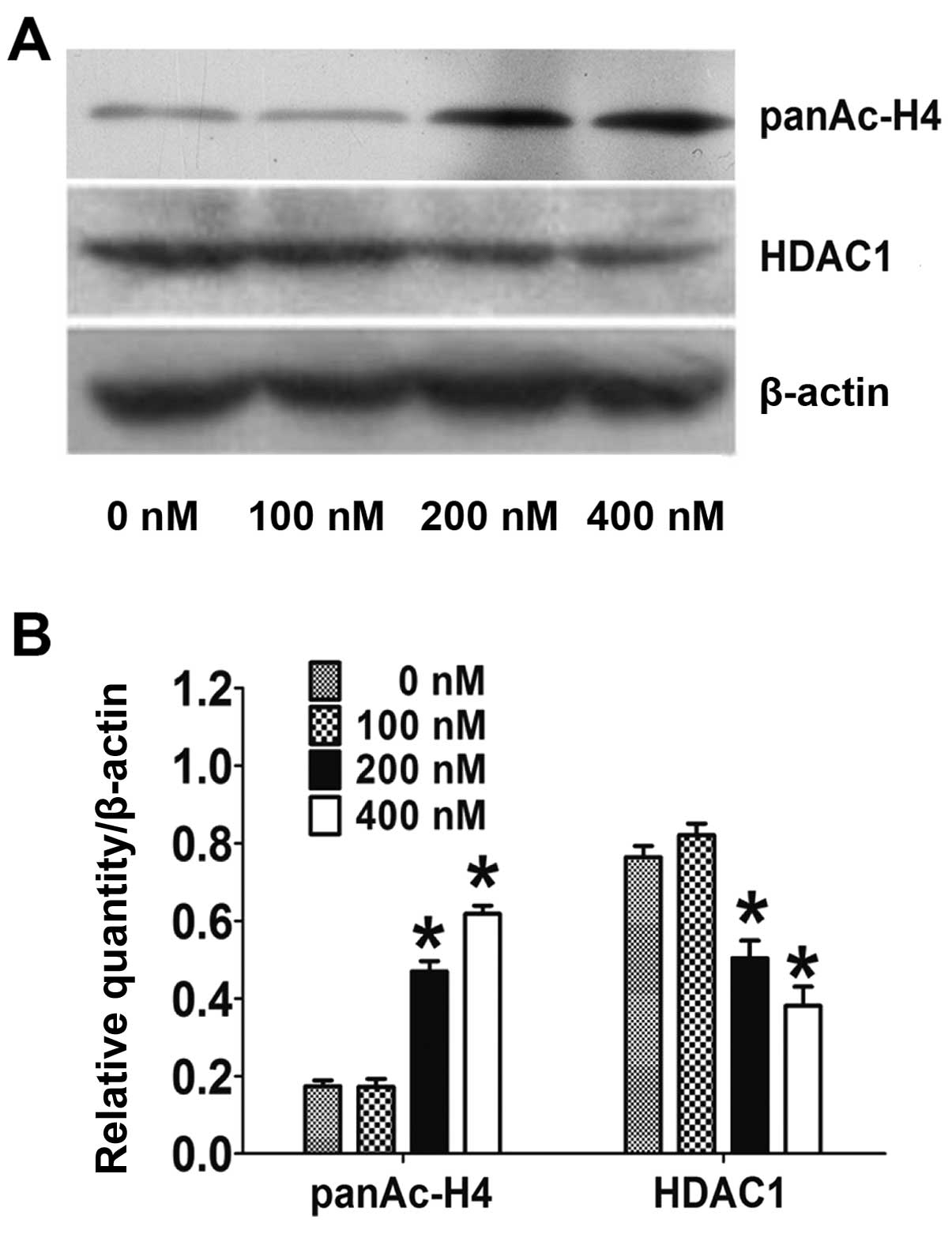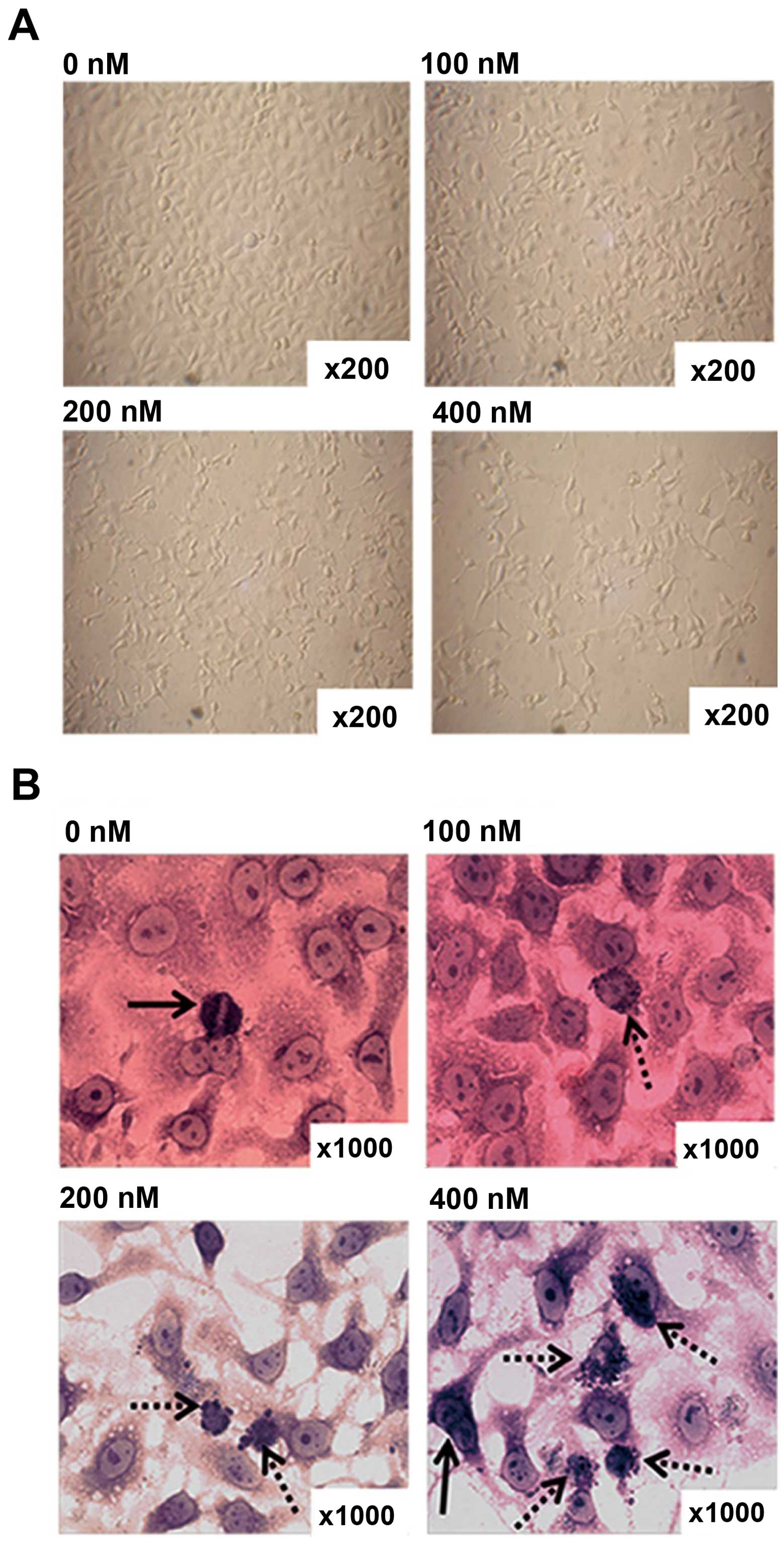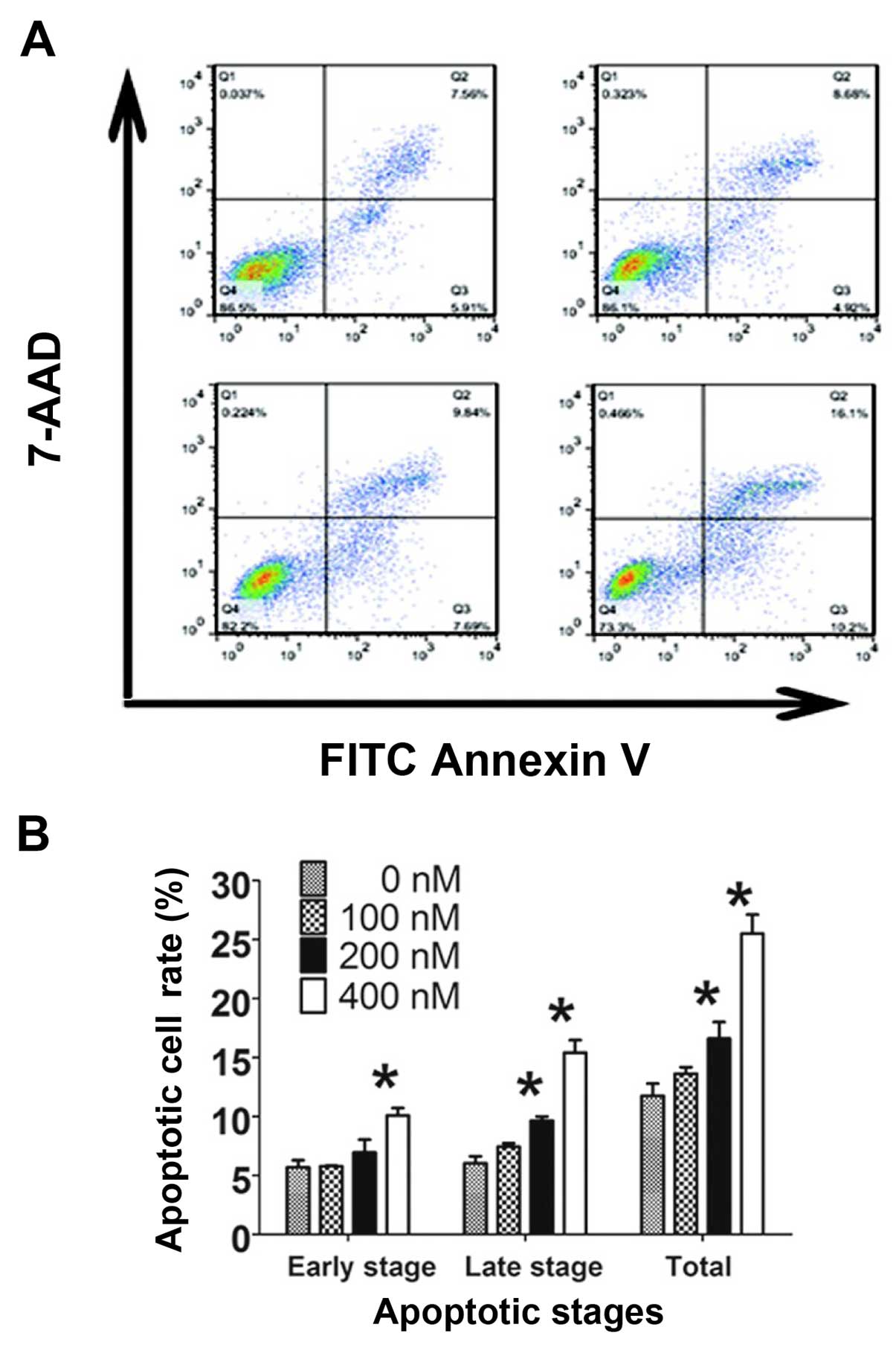|
1
|
Everhart JE and Ruhl CE: Burden of
digestive diseases in the United States Part III: Liver, biliary
tract, and pancreas. Gastroenterology. 136:1134–1144. 2009.
View Article : Google Scholar : PubMed/NCBI
|
|
2
|
Iavarone M, Piscaglia F, Vavassori S,
Galassi M, Sangiovanni A, Venerandi L, Forzenigo LV, Golfieri R,
Bolondi L and Colombo M: Contrast enhanced CT-scan to diagnose
intrahepatic cholangiocarcinoma in patients with cirrhosis. J
Hepatol. 58:1188–1193. 2013. View Article : Google Scholar : PubMed/NCBI
|
|
3
|
Kim SH, Lee CH, Kim BH, Kim WB, Yeom SK,
Kim KA and Park CM: Typical and atypical imaging findings of
intrahepatic cholangiocarcinoma using gadolinium ethoxybenzyl
diethylenetriamine pentaacetic acid-enhanced magnetic resonance
imaging. J Comput Assist Tomogr. 36:704–709. 2012. View Article : Google Scholar : PubMed/NCBI
|
|
4
|
Robles R, Figueras J, Turrión VS, Margarit
C, Moya A, Varo E, Calleja J, Valdivieso A, Valdecasas JC, López P,
et al: Spanish experience in liver transplantation for hilar and
peripheral cholangiocarcinoma. Ann Surg. 239:265–271. 2004.
View Article : Google Scholar : PubMed/NCBI
|
|
5
|
Tepsiri N, Chaturat L, Sripa B, Namwat W,
Wongkham S, Bhudhisawasdi V and Tassaneeyakul W: Drug sensitivity
and drug resistance profiles of human intrahepatic
cholangiocarcinoma cell lines. World J Gastroenterol. 11:2748–2753.
2005. View Article : Google Scholar : PubMed/NCBI
|
|
6
|
Kiefer MV, Albert M, McNally M, Robertson
M, Sun W, Fraker D, Olthoff K, Christians K, Pappas S, Rilling W,
et al: Chemoembolization of intrahepatic cholangiocarcinoma with
cisplatinum, doxorubicin, mitomycin C, ethiodol, and polyvinyl
alcohol: A 2-center study. Cancer. 117:1498–1505. 2011. View Article : Google Scholar : PubMed/NCBI
|
|
7
|
Lee J, Park SH, Chang HM, Kim JS, Choi HJ,
Lee MA, Jang JS, Jeung HC, Kang JH, Lee HW, et al: Gemcitabine and
oxaliplatin with or without erlotinib in advanced biliary-tract
cancer: A multicentre, open-label, randomised, phase 3 study.
Lancet Oncol. 13:181–188. 2012. View Article : Google Scholar
|
|
8
|
Valle J, Wasan H, Palmer DH, Cunningham D,
Anthoney A, Maraveyas A, Madhusudan S, Iveson T, Hughes S, Pereira
SP, et al: ABC-02 Trial Investigators: Cisplatin plus gemcitabine
versus gemcitabine for biliary tract cancer. N Engl J Med.
362:1273–1281. 2010. View Article : Google Scholar : PubMed/NCBI
|
|
9
|
Sriraksa R and Limpaiboon T: Histone
deacetylases and their inhibitors as potential therapeutic drugs
for cholangiocarcinoma - cell line findings. Asian Pac J Cancer
Prev. 14:2503–2508. 2013. View Article : Google Scholar : PubMed/NCBI
|
|
10
|
Morine Y, Shimada M, Iwahashi S,
Utsunomiya T, Imura S, Ikemoto T, Mori H, Hanaoka J and Miyake H:
Role of histone deacetylase expression in intrahepatic
cholangiocarcinoma. Surgery. 151:412–419. 2012. View Article : Google Scholar
|
|
11
|
Zhang P, Guo Z, Wu Y, Hu R, Du J, He X,
Jiao X and Zhu X: Histone deacetylase inhibitors inhibit the
proliferation of gallbladder carcinoma cells by suppressing
AKT/mTOR signaling. PLoS One. 10:e1361932015.
|
|
12
|
Kitamura T, Connolly K, Ruffino L, Ajiki
T, Lueckgen A, DiGiovanni J and Kiguchi K: The therapeutic effect
of histone deacetylase inhibitor PCI-24781 on gallbladder carcinoma
in BK5.erbB2 mice. J Hepatol. 57:84–91. 2012. View Article : Google Scholar : PubMed/NCBI
|
|
13
|
Iwahashi S, Ishibashi H, Utsunomiya T,
Morine Y, Ochir TL, Hanaoka J, Mori H, Ikemoto T, Imura S and
Shimada M: Effect of histone deacetylase inhibitor in combination
with 5-fluorouracil on pancreas cancer and cholangiocarcinoma cell
lines. J Med Invest. 58:106–109. 2011. View Article : Google Scholar : PubMed/NCBI
|
|
14
|
Islam MN, Islam MS, Hoque MA, Kato T,
Nishino N, Ito A and Yoshida M: Bicyclic tetrapeptides as potent
HDAC inhibitors: Effect of aliphatic loop position and
hydrophobicity on inhibitory activity. Bioorg Med Chem.
22:3862–3870. 2014. View Article : Google Scholar : PubMed/NCBI
|
|
15
|
Walton JD: HC-toxin. Phytochemistry.
67:1406–1413. 2006. View Article : Google Scholar : PubMed/NCBI
|
|
16
|
Deubzer HE, Ehemann V, Kulozik AE,
Westermann F, Savelyeva L, Kopp-Schneider A, Riester D, Schwab M
and Witt O: Anti-neuroblastoma activity of Helminthosporium
carbonum (HC)-toxin is superior to that of other differentiating
compounds in vitro. Cancer Lett. 264:21–28. 2008. View Article : Google Scholar : PubMed/NCBI
|
|
17
|
Joung KE, Kim DK and Sheen YY:
Antiproliferative effect of trichostatin A and HC-toxin in T47D
human breast cancer cells. Arch Pharm Res. 27:640–645. 2004.
View Article : Google Scholar : PubMed/NCBI
|
|
18
|
Kamitani H, Taniura S, Ikawa H, Watanabe
T, Kelavkar UP and Eling TE: Expression of 15-lipoxygenase-1 is
regulated by histone acetylation in human colorectal carcinoma.
Carcinogenesis. 22:187–191. 2001. View Article : Google Scholar : PubMed/NCBI
|
|
19
|
Khan SA, Davidson BR, Goldin RD, Heaton N,
Karani J, Pereira SP, Rosenberg WM, Tait P, Taylor-Robinson SD,
Thillainayagam AV, et al: British Society of Gastroenterology:
Guidelines for the diagnosis and treatment of cholangiocarcinoma.
An update Gut. 61:1657–1669. 2012. View Article : Google Scholar
|
|
20
|
Jung M: Inhibitors of histone deacetylase
as new anticancer agents. Curr Med Chem. 8:1505–1511. 2001.
View Article : Google Scholar : PubMed/NCBI
|
|
21
|
Weber SM, Ribero D, O'Reilly EM, Kokudo N,
Miyazaki M and Pawlik TM: Intrahepatic cholangiocarcinoma: Expert
consensus statement. HPB. 17:669–680. 2015. View Article : Google Scholar : PubMed/NCBI
|
|
22
|
Bridgewater J, Galle PR, Khan SA, Llovet
JM, Park JW, Patel T, Pawlik TM and Gores GJ: Guidelines for the
diagnosis and management of intrahepatic cholangiocarcinoma. J
Hepatol. 60:1268–1289. 2014. View Article : Google Scholar : PubMed/NCBI
|
|
23
|
Richon VM, Sandhoff TW, Rifkind RA and
Marks PA: Histone deacetylase inhibitor selectively induces
p21WAF1 expression and gene-associated histone
acetylation. Proc Natl Acad Sci USA. 97:10014–10019. 2000.
View Article : Google Scholar
|
|
24
|
Yamaguchi J, Sasaki M, Sato Y, Itatsu K,
Harada K, Zen Y, Ikeda H, Nimura Y, Nagino M and Nakanuma Y:
Histone deacetylase inhibitor (SAHA) and repression of EZH2
synergistically inhibit proliferation of gallbladder carcinoma.
Cancer Sci. 101:355–362. 2010. View Article : Google Scholar
|
|
25
|
Sachweh MC, Drummond CJ, Higgins M,
Campbell J and Laín S: Incompatible effects of p53 and HDAC
inhibition on p21 expression and cell cycle progression. Cell Death
Dis. 4:e5332013. View Article : Google Scholar : PubMed/NCBI
|
|
26
|
Emori T, Kitamura K and Okazaki K: Nuclear
Smad7 overexpressed in mesenchymal cells acts as a transcriptional
corepressor by interacting with HDAC-1 and E2F to regulate cell
cycle. Biol Open. 1:247–260. 2012. View Article : Google Scholar : PubMed/NCBI
|
|
27
|
Li L, Dai HJ, Ye M, Wang SL, Xiao XJ,
Zheng J, Chen HY, Luo YH and Liu J: Lycorine induces cell-cycle
arrest in the G0/G1 phase in K562 cells via HDAC inhibition. Cancer
Cell Int. 12(49)2012. View Article : Google Scholar
|
|
28
|
Porter AG and Jänicke RU: Emerging roles
of caspase-3 in apoptosis. Cell Death Differ. 6:99–104. 1999.
View Article : Google Scholar : PubMed/NCBI
|
|
29
|
Laulier C and Lopez BS: The secret life of
Bcl-2: Apoptosis-independent inhibition of DNA repair by Bcl-2
family members. Mutat Res. 751:247–257. 2012. View Article : Google Scholar : PubMed/NCBI
|
|
30
|
Sinha K, Das J, Pal PB and Sil PC:
Oxidative stress: The mitochondria-dependent and
mitochondria-independent pathways of apoptosis. Arch Toxicol.
87:1157–1180. 2013. View Article : Google Scholar : PubMed/NCBI
|
|
31
|
Candé C, Cohen I, Daugas E, Ravagnan L,
Larochette N, Zamzami N and Kroemer G: Apoptosis-inducing factor
(AIF): A novel caspase-independent death effector released from
mitochondria. Biochimie. 84:215–222. 2002. View Article : Google Scholar : PubMed/NCBI
|
|
32
|
Scott RE: Differentiation,
differentiation/gene therapy and cancer. Pharmacol Ther. 73:51–65.
1997. View Article : Google Scholar : PubMed/NCBI
|
|
33
|
Deubzer HE, Ehemann V, Westermann F,
Heinrich R, Mechtersheimer G, Kulozik AE, Schwab M and Witt O:
Histone deacetylase inhibitor Helminthosporium carbonum (HC)-toxin
suppresses the malignant phenotype of neuroblastoma cells. Int J
Cancer. 122:1891–1900. 2008. View Article : Google Scholar
|




















